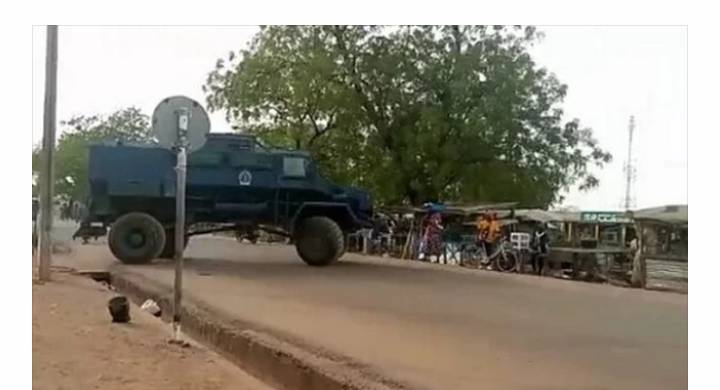Bawku Conflict: Death Toll Rises to 26 as Violence Escalates
Bawku, Ghana – The death toll in the Bawku conflict has climbed to 26 as violence escalates in the northeastern region of Ghana. The recent clashes have fueled widespread concern among residents and stakeholders about the growing insecurity in the area, which has been plagued by tension for years. Reports from local authorities indicate that renewed hostilities in the area have seen an increase in armed confrontations, leading to further casualties and displacement of residents.
The violent outbreaks in Bawku have roots in longstanding ethnic and chieftaincy disputes between rival groups, which have deepened with recent incidents. Over the past few weeks, clashes between opposing factions have intensified, with both sides alleging acts of aggression and retaliation. According to local sources, the conflict recently spread to new areas, prompting security forces to reinforce their presence. However, there remains a growing fear that the violence could extend further, impacting other parts of the region.
Local law enforcement and security personnel have been working around the clock to contain the situation and maintain peace. The Regional Security Council (REGSEC) deployed additional personnel to the conflict zones, particularly targeting high-risk areas where clashes have been frequent. Despite these efforts, reports indicate that several families have been forced to flee their homes, and schools and businesses have closed in affected areas.
“We are doing everything we can to manage the situation,†said a REGSEC official who spoke on condition of anonymity. “But the challenges are enormous, given the nature of the conflict and the growing involvement of various groups. We urge everyone to remain calm and cooperate with security forces to restore peace.â€
The conflict has drawn attention from national and international organizations calling for immediate intervention to prevent further loss of life and stabilize the situation. Many civil society organizations are urging the government to prioritize peace efforts and engage the leaders of the conflicting factions in dialogue. The Bawku Naba, Naaba Abugrago Azoka II, and other local leaders have also expressed their deep concerns over the escalation and are calling for restraint on all sides.
“The conflict is deeply distressing for all of us,†said Naaba Abugrago Azoka II in a recent statement. “We must work together to ensure peace in Bawku. Violence cannot solve the issues, and I urge our people to embrace dialogue and seek peaceful solutions.â€
Humanitarian aid organizations are now mobilizing resources to support the displaced residents. Hundreds of families who fled their homes are seeking shelter in nearby towns, placing pressure on resources in those communities. Relief agencies are appealing to the government and well-meaning Ghanaians to offer assistance to those affected by the violence, particularly with food, shelter, and medical supplies.
The Bawku conflict continues to impact the region economically, as businesses close and transportation routes are disrupted. Local farmers have reported abandoning their fields due to safety concerns, raising fears about the potential impact on food security in the area. The economic strain of the violence is compounded by the rising cost of providing emergency aid to affected families, creating further challenges for a region already facing developmental hurdles.
National security experts warn that unless a swift resolution is found, the Bawku conflict could continue to destabilize the region. Stakeholders, including the Regional Security Council and various peace-building organizations, have outlined a number of potential strategies for defusing tensions, including sustained mediation efforts, re-engagement of local leaders, and a stronger emphasis on security measures to prevent further outbreaks.
For now, the people of Bawku remain on edge, hoping for an end to the hostilities that have disrupted their lives. As the death toll continues to rise, it is clear that a long-term solution is urgently needed to bring lasting peace to the area and provide the affected communities with a sense of security and stability.




No comments yet
Be the first to share your thoughts!